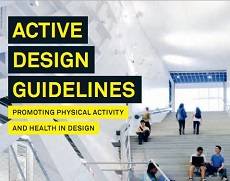July 22, 2013
Active Building Design initiatives announced by New York Mayor
The Mayor of New York Michael Bloomburg has announced a series of initiatives to promote physical activity through the design of buildings and public spaces to encourage architects, planners and urban designers help combat obesity in the City. The Center for Active Design, a non-profit organization that promotes changes to the built environment to improve wellness is being created, and the Mayor has issued an Executive Order requiring City agencies use active design strategies when performing new construction and major renovation projects. Two pieces of legislation will promote stairway access in all buildings, with measures such as making stairways more visible to encourage use. (more…)
























July 2, 2013
Younger workers’ CSR ethics don’t necessarily extend to older generation
by Sara Bean • Comment, Legal news, News, Workplace
Is ageism one of the last bastions of accepted prejudice in the UK? Take the Daily Mail’s “night of the living dead” coverage of the Stones’ Glastonbury performance – deemed acceptable where jokes regarding gender, race or disability are not. A new survey illustrates this attitude. Nearly half of younger workers in a recent poll think older colleagues are in danger of stifling their career prospects by retiring later, that their prolonged presence could damage productivity and that they have very little to teach the younger generation. Yet over half (55 per cent) of Generation Y workers questioned in the poll say the ethical credentials of a company would influence their choice of employer. Since the scrapping of the Default Retirement Age (DRA) the number of over-65s in the labour force has exceeded one million, and the survey, carried out for KPMG by OnePoll warns that tensions could rise as the need for employees to stay in the labour force for longer growing due to social and financial pressures. (more…)